Hearing Held For Iranian Dual National Months After Death Sentence
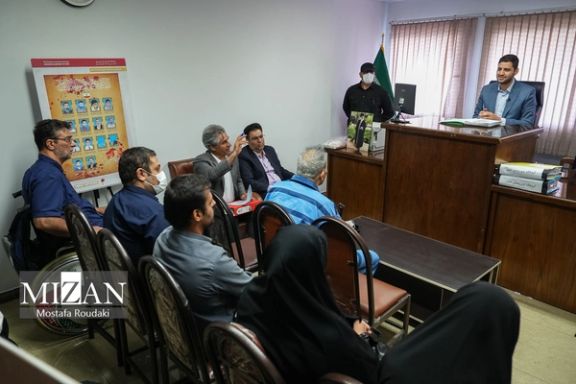
Several months after being sentenced to death, Jamshid Sharmahd, a dual national abducted in Dubai, has been given a new court hearing, with threats of additional charges.

Several months after being sentenced to death, Jamshid Sharmahd, a dual national abducted in Dubai, has been given a new court hearing, with threats of additional charges.
Sharmahd, who holds German and Iranian citizenship, was abducted by Iranian agents in 2020, smuggling him to Iran. he was sentenced to death in February after being convicted of heading a pro-monarchist group named Tondar accused of a deadly bombing incident that occurred in 2008 at a religious center in Shiraz, killing 14 and injuring 215 more.
During his imprisonment, human rights organizations have raised concerns about the deteriorating health of the 68-year-old who has been held in solitary confinement with allegations of his being denied access to an independent attorney and fair legal procedures during his trial.
The US based activist whose group aims to restore the overthrown monarchy, toppled in the 1979 revolution, is believed to have been forced to confess to the charges against him, in line with innumerable cases under the regime. His family calls the allegations "ridiculous".
The Mizan News Agency quoted the judge presiding over the new hearing as saying the case is one seeking compensation and justice for the families of those lost in the 2008 bomb attack. “The case has been characterized as a lawsuit by families who have lost loved ones, witnessed injuries, or experienced disabilities in terrorist operations attributed to the Tondar group," judge Majid Hosseinzadeh said.
The issue of dual national hostages has resurfaced in light of the latest Qatar-brokered deal to free up $6bn in frozen Iranian funds in South Korea in exchange for five US citizens, leading to allegations that the Biden administration is playing a dangerous game encouraging the hostage-taking of yet more dual nationals abroad.
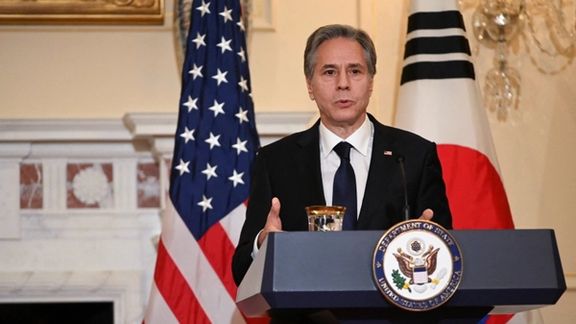
US Secretary of State Antony Blinken has signed a sanction waiver to allow the release of $6 billion of Iran’s frozen assets in a hostage release deal with Tehran.
The move will allow the funds blocked in two South Korean banks to reach Qatar without violating US banking sanctions imposed on Iran. According to the State Department document, Secretary of State Blinken determined that waiving the sanctions was in the national security interests of the United States.
Sources told AP that Blinken had approved the waiver last week, but Congress was only informed on Monday.
Both Washington and Tehran since announcing the prisoner release deal in August were hinting that the prisoner release deal and the unblocking of the funds were separate issues, but the waiver document clearly links the two as one agreement.
"Allowing these funds to be transferred from restricted Iranian accounts held in the (Republic of Korea) to accounts in Qatar for humanitarian trade is necessary to facilitate the release of these US citizens," the document said.
The news about the waiver came hours after an EU Commissioner expressed deep concern over the situation of Johan Floderus, a Swedish diplomat detained in Iran more than 500 days ago.

Floderus seems to be yet another victim of Iran's 'hostage diplomacy'. His case was kept secret for a long time by Sweden and the European Union in the hope that silence would secure his release.
On Monday, Ylva Johansson, the EU Commissioner previously responsible for Floderus's work, publicly addressed his case for the first time. "I'm very sad. I'm very worried," she said, “let’s hope that we can have him home soon”.
The long-kept secret of Floderus' plight first came to light in a New York Times report on 1 September. Shortly after, his family broke their silence and set out some details of his mistreatment in prison, including 24-hour lighting in the cell and over 300 days in solitary confinement.
Floderus turned 33 in prison last week.
In a statement published by a Swedish newspaper, Floderus’ family said he had spent some time in Iran on EU official business and had no issues. Sometime in early April 2022, he went back to Iran for vacation with his Swedish friends. On 17 April, he wanted to fly back home but was detained at Tehran’s international airport.
It’s not clear if Floderus had been advised against traveling to Iran on a personal capacity.
He has now joined a long list of foreigners and Iranian dual-nationals who in recent years have been detained in Iran and used as bargaining chips to force prisoner exchange or financial concessions.
Early August, four US dual-nationals were released from prison into house arrest in Tehran. Blinken said at the time that the move was the first step of a process to fly them home.
Opponents of the prospective deal say it encourages the Islamic Republic to detain more American and EU citizens.
Michael Rubin, a senior fellow at the American Enterprise Institute and a former Pentagon official, is a vocal critic of what seems to be the current EU/US policy towards Iran.
In a piece for Washington Examiner on Monday, he wrote: "When Iran brings a gun, Biden and his European partners wave cash. No wonder it is open season for Americans and Europeans worldwide."
Rubin lamented the 500-day silence over Johan Floderus' detainment and suggested that the authorities in Iran are looking to "trade him for Hamid Nouri".
Nouri is a former official of the Islamic Republic Judiciary who was arrested in Sweden and is now serving a life sentence for his involvement in the mass execution of up to 5,000 Iranian political prisoners in 1988.
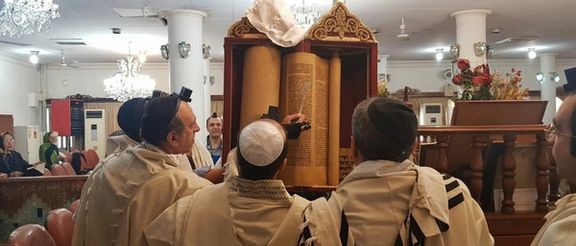
The one-year anniversary of Mahsa Amini’s murder coincides with the Jewish New Year on September 16, prompting community leaders to warn Jews to stay off the streets.
In a Telegram posting from Iran’s Jewish community on Sunday, the leadership wrote “All worshipers are strongly requested to refrain from stopping and gathering in the streets for any reason during Rosh Hashanah and after performing religious duties in synagogues.”
Alireza Nader, an Iran scholar based in Washington, DC, told Iran International, “The remaining few members of the Jewish community in Iran live in constant fear. Any sort of public pronouncement or guidance from their leadership should be seen in light of the community’s extreme vulnerability.” Nader has written about the persecution of Iranian Jews.
Beni Sabti, an expert on Iran from the Israeli National Security and Strategy Institute, who first located the Telegram post, told Iran International that the Jewish leadership is “worried that Jews can be in trouble if they stay in the streets” and urged them “to rapidly go from the synagogues to their houses.”
Sabti is a Tehran-born Jew who speaks fluent Persian and has extensively documented the Iranian regime’s repression of the country’s tiny Jewish population, which is estimated to number 9,000 members.
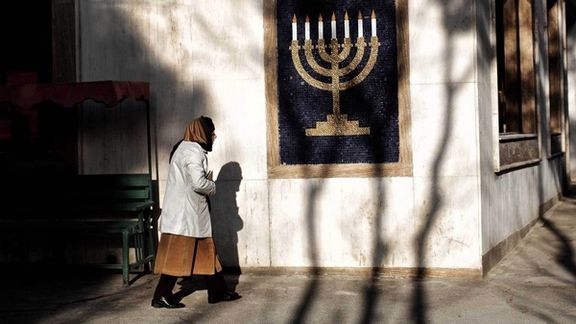
In April, Iran International reported that the Islamic Republic ordered Jews to participate in the antisemitic al-Quds Day rally during the Jewish holiday of Passover.
Sabti said the situation with Rosh Hashanah is comparable to Passover because the Jewish leadership said at the time on its Telegram platform: “Please do not go for picnics or enjoyable activities on al-Quds Day.”
Sabti added, “It is like al-Quds Day. They have to show their loyalty. They use delicate words. They use the kind of words that the regime can’t be upset with them for. The regime and Jews understand it.
They don’t say directly there are protests. This would be forbidden. They go around it. This is the kind of cultural talking for people with a Persian background in Iran.”
Prior to Iran’s Islamic revolution in 1979, Iran’s Jewish population numbered at least 100,000, most of whom fled after Ayatollah Ruhollah Khomeini seized power.
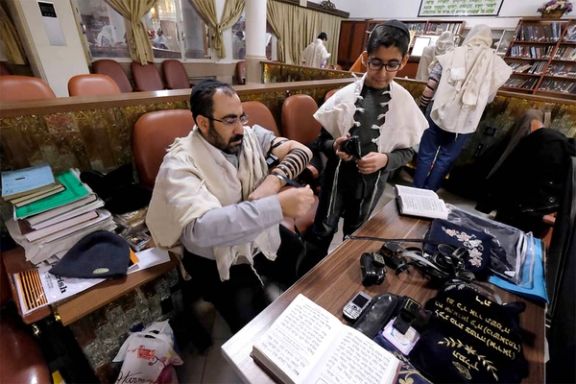
According to the Telegram post, the Jewish community wrote: “Coordination with the police force to create security and comfort for the grand ceremony of Rosh Hashanah .Respectfully, while congratulating in advance on Rosh Hashanah and wishing you a prosperous year, we inform you that by the grace of the Almighty and with the coordination made with the respected police force of Greater Tehran, the necessary arrangements have been made for the safety and comfort of our dear fellow believers for the celebration of the glorious and fateful day of Rosh Hashanah.”
Sabti noted the “Iranian Jewish leadership complimented the Iranian regime police. This is what they have to do.” He says the Iranian Jewish community has to “show they are loyal to the Iranian regime.”
The Telegram post noted “The public relations of the Tehran Jews Association, while thanking the loved ones of the police force for their unquestionable and constant help, has no doubt that the Kalimi community will once again draw a line against the evil plans of Iran's enemies and celebrate the magnificent ceremony of Rosh Hashanah away from any sidelines.”
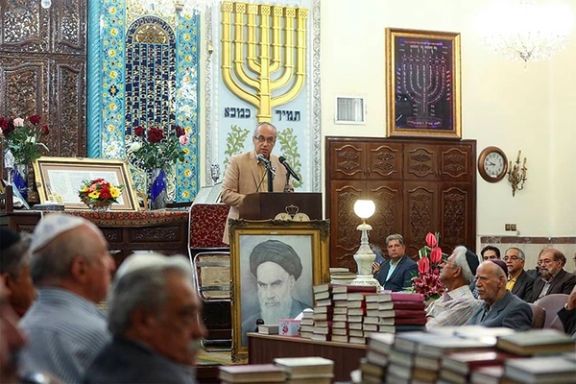
Sabti said the word Kalimi is a “polite word for Jewish” and “They don’t use the Jew because it means Zionist for the regime.” He said the Iranian word Kalimi can be loosely translated as the people from “Moses’s nation.”
Iran International exclusively reported in December that the Islamic Republic imposed pressure on religious minorities to compel them to condemn the uprising of the Iranian people following the murder of Amini in police custody.
Also in December, the regime arrested five Iranian Jews during the nationwide protests.
Iran’s regime and its foreign policy are based on an antisemitic world view, according to experts on the Middle East. The Middle East Media Research Institute (MEMRI) exposed Iran’s former foreign minister Mohammad Javad Zarif using an antisemitic term for Jews. “In a December 9, 2020 interview with Arman TV, Zarif used the antisemitic term for Jews – johood in Persian,” wrote MEMRI.
MEMRI noted, “A few days later, he attempted to cover up his statement with a dishonest attack on MEMRI. On December 16, he tweeted: ‘MEMRI has sunk to a new low in taking my pejorative usage of a word to accuse me of Antisemitism..."’
MEMRI added, “Foreign Minister Zarif is lying about Iran's positions on Jews and Israel. The MEMRI archives are full of research proving that the Iranian regime and its leaders are antisemitic and call openly for the annihilation of Israel.”
George Haroonian, one of the leading voices of the Iranian-Jewish community in the US, told Iran International "Contacting and coordinating with police in High Holidays is common practice wherever Jews are, but this announcement has some peculiar 'matters.' Who they mean by 'enemies' who might seize the occasion? Seems they are concerned about anti-Jewish elements within the country who might want to cause harm. As always, Jews are at the mercy of the regime."
He added, "I believe majority of Iranian people do not wish anything negative for Iranian Jewish community, but there is a minority who justifies their antisemitism based on variety of rationals. Based on Islamic beliefs as well as their hate for Israel."
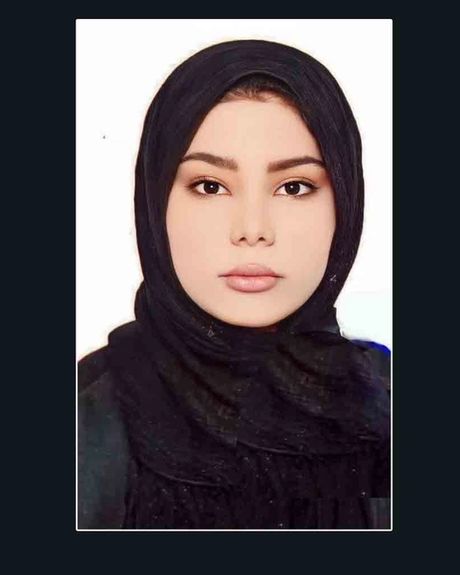
A tragedy unfolded in Ravansar in the Iranian province of Kermanshah as a 14-year-old child bride, Mona Aghaie, lost her life at the hands of her own brother.
According to the Center For Human Rights In Iran, the victim had been seeking a divorce before her life was cut short. Apparently, the brother killed her to uphold the family's honor.
The death of Mona Aghaie is not an isolated incident. Individual acts of violence, often referred to as honor killings, remain alarmingly intertwined with certain societal beliefs and Iran's legal framework. Many perpetrators of such acts are not brought to justice, especially when they are family members of the victim. This is particularly true if the perpetrator is the victim's father.
Iran's Islamic Penal Code includes a provision that fathers, and paternal grandfathers cannot be sentenced to death for killing their child or grandchild. Instead, they may face prison sentences and the obligation to pay "blood money" to the next of kin, typically the mother if demanded. Moreover, mothers have the authority to forgive the murderer entirely, waiving the blood money.
In cases of particularly violent crimes or those deemed to harm society, judges have the authority to impose additional sentences "on behalf of the public." However, the prevalence of honor killings in certain parts of Iran persists, largely due to the Islamic Republic's lenient laws and light sentences, which can encourage such behavior.
Advocates and organizations dedicated to women's rights and human rights have been calling for immediate action to address these pressing issues and ensure justice for victims like Mona.
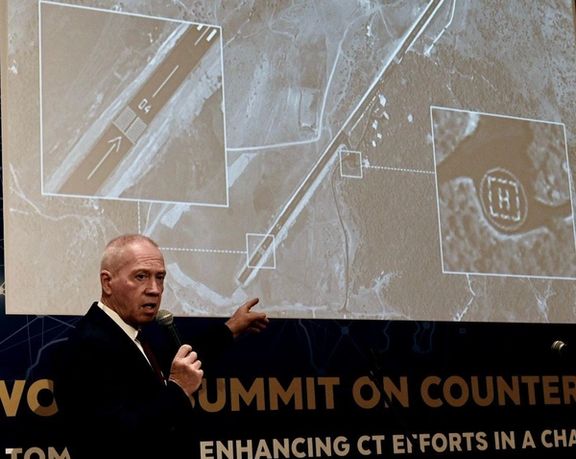
Israeli Defense Minister Yoav Gallant has leveled accusations against Iran, alleging the establishment of an airport facility in southern Lebanon.
Gallant asserted Monday that Iran's intention behind establishing the airport is to facilitate potential attacks against Israel.
Addressing an international security conference hosted by Reichman University, Gallant presented evidence in the form of aerial images of the alleged site. According to the defense minister, the site is strategically situated approximately 20 kilometers (12.4 miles) from the Israeli border town of Metulla and possesses the capacity to accommodate mid-sized aircraft.
The backdrop to this accusation is the current control of southern Lebanon by Hezbollah, an armed militant group backed by Iran, with which Israel engaged in a war in 2006. Recent months have witnessed a resurgence of tensions in the region, raising concerns about regional stability and renewed large-scale armed conflict.
For Iran's clerical regime, Lebanon serves as a foothold dominated by Hezbollah, affording them the means to threaten Israel. While many Shiites view Iran as a source of financial support, a significant portion of Lebanon's Christian and Sunni populations resent Hezbollah and Iran's growing influence.
The founder of the Islamic Republic of Iran, Ayatollah Ruhollah Khomeini and his successors, have consistently expressed enmity towards Israel and have repeatedly called for its destruction over the years. Iran's arming of Hezbollah with a substantial arsenal of rockets and missiles further compounds the security challenges, directly threatening Israeli cities due to Hezbollah's operational presence in Shiite-dominated southern Lebanon.
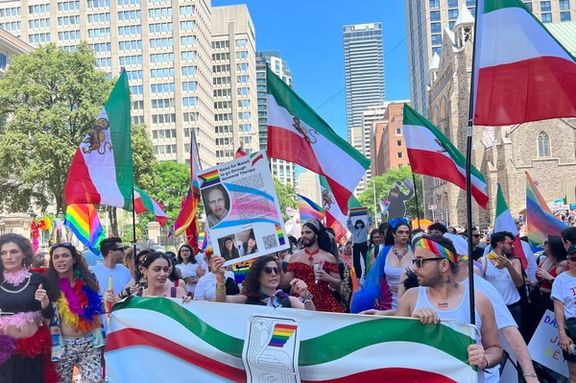
Iranian LGBTQ activists have endorsed worldwide protests on September 16 to commemorate the death of Mahsa Amini.
In a joint statement, activist groups such as Simorgh, Six Colors, the Iranian Rainbow Coalition, and the Queer Rights Group claim that the current revolutionary wave holds the potential to secure the liberation and equality of the rainbow community in Iran, marking the end of centuries of discrimination and prejudice, including to the country's LGBTQ community.
They have called on political and social groups, both within and outside of Iran, to join in anti-regime protests.
Since the inception of the Women, Life, Freedom uprising, the Iranian LGBTQ community has been at the forefront, articulating their vision for a post-Islamic Republic Iran through active participation in both domestic and international protests.
Despite the many challenges faced by LGBTQ individuals in Iran, they continue to confront dangers, including the risk of execution and other forms of punishment under the laws of the Islamic Republic.
Iranian authorities have resorted to derogatory labels and stigmatization when addressing LGBTQ citizens, referring to them as "deviant" and "sick", same sex relations forbidden in Islamic laws.






